If you're wondering, “is it time for engine repair?” Look for these ten potential signs:
- Engine knocking
- Engine squealing
- Engine grinding
- Blue exhaust smoke
- White exhaust smoke
- Black exhaust smoke
- Check engine lights illuminating
- Fluids leaks
- Over consuming fuel
- Loss of engine power
All drivers understand the importance of keeping up with their vehicle’s engine repair. However, there are many situations where inexperienced drivers might think it's just a blip and they don't need to fix any problem or even pay attention to it.
Unfortunately, some of the biggest engine problems could occur because you ignored a minor sign. Therefore, every driver needs to educate himself about the different signs that could indicate engine repair soon. This article walks you through ten potential signs to help you answer the question, “is it time for engine repair?”
Once you realize any of these signs, you must take your vehicle immediately to the mechanic and have him perform a thorough inspection to prevent major complications that could cost you thousands of dollars on repair.
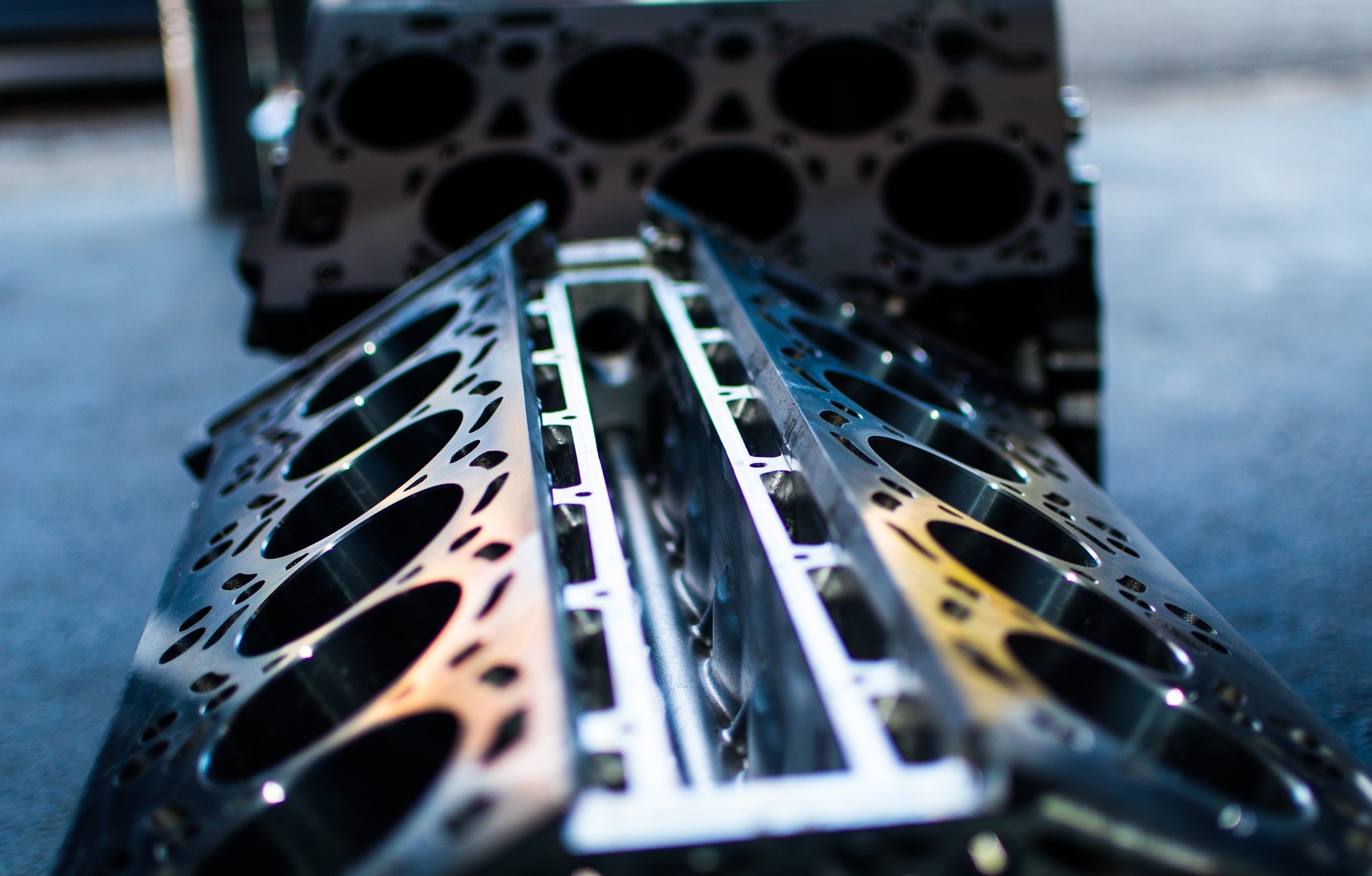
Is it time for engine repair? 10 potential signs
Many signs could indicate internal problems with your engine. Sometimes it can be overwhelming to go through all these signs, but it is still critical to at least go through the top ten. Automotive experts summarized all potential indications of the need for engine repair soon.
This list summarizes the top ten potential signs to look for:
1. Engine knocking
The easiest and most common symptom indicating the need for engine repair is noticing some weird noises coming from the engine. Remember that every noise might indicate a different problem, so it is important for you as a driver to pay attention closely and describe the noise accurately. Hence, your mechanic knows what's going on.
The most common knowledge that you might experience is engine knocking. This noise is more like thumping noises, typically related to rod bearing. The rod bearing is expected to wear out at some point in time, and when this happens, it will cause these thumping noises that you will experience.
Unfortunately, if it's the Rodney ring causing this issue, your mechanic will most likely recommend replacing it. Otherwise, the problem might evolve and could cause some damage to the surrounding components, which get to a point where it's not under control, and you might end up Replacing the entire engine.
2. Engine squealing
The second type of noise you might experience is more like squealing or squeaking noises. Again, this is typically related to some belt issues. These belts around the engine get loose, they stop controlling the different pulleys, and that's where they'll start making some squealing noises.
If you were lucky enough, you would have detected these problems as early as possible because there's a very high chance that you will not have to pay thousands of dollars for repair. However, if you ignore these noises for a long time, you can get to a point where the belts snap and cause some components to jump out and cause other damage to the surrounding engine compartment.
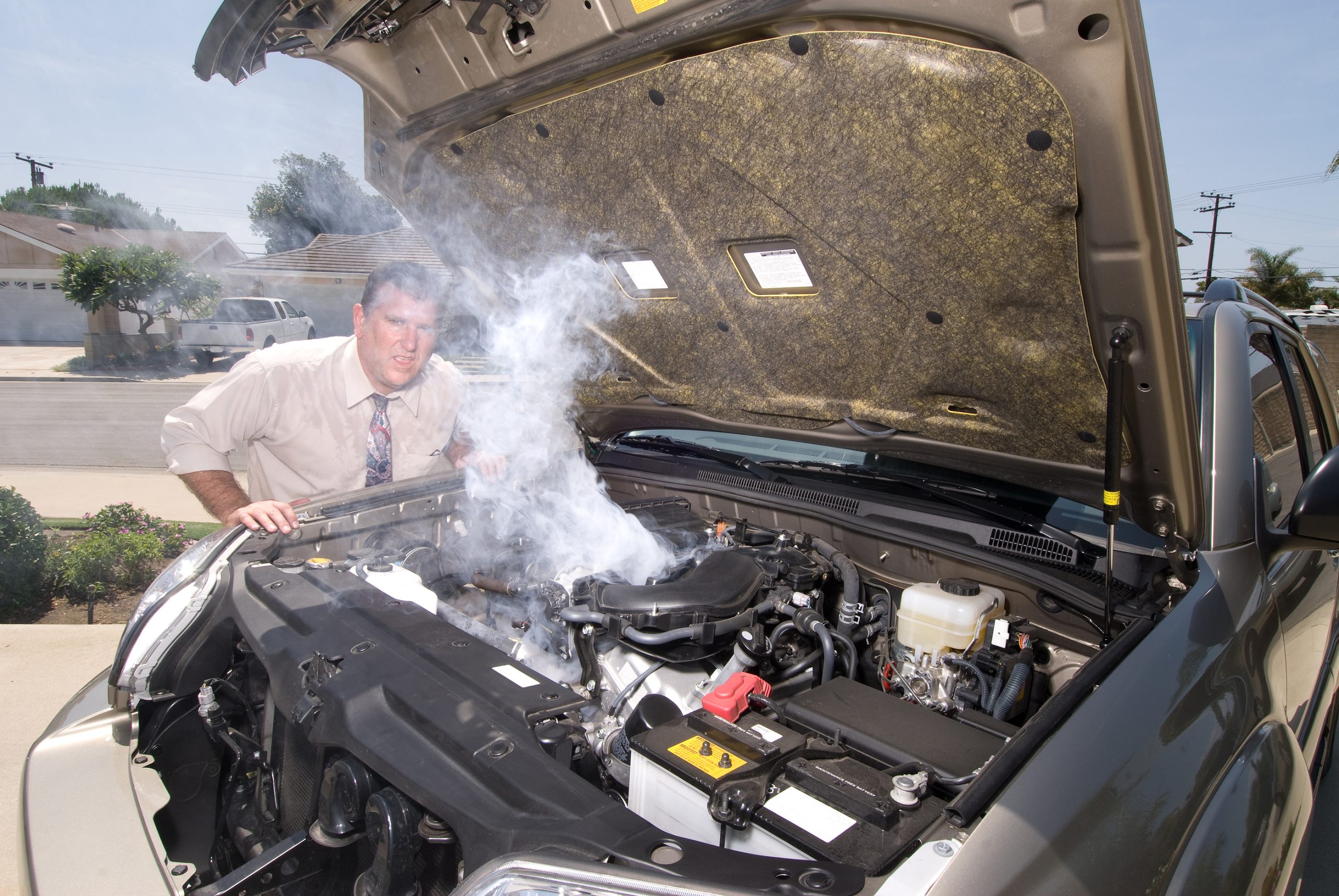
3. Engine grinding
Grinding noises are typically associated with the braking system. However, they might come from the engine compartment side, indicating some issues inside the engine. When the engine's different bearings wear out, they might also make some weird grinding noises, and therefore, you get to have your mechanic inspect the different bearings and replace what's needed to be replaced.
4. Blue exhaust smoke
In addition to the different weird noises that you will experience with the engine problems, you will also notice some visible colors in the smoke coming out of the tailpipe.
Typically, and in most modern vehicles, the smoke coming out of the tailpipe should not have a strong color unless you're starting your vehicle in the early mornings after a long stop. However, when you start to realize some colors in the vehicles smoke, our concerns should arise.
Ignoring these colors can easily lead to significant damage to your engine, and that's why I like to focus on the different colors and provide you with a detailed summary of what it means to experience this specific color.
The first color you would like to highlight is blue smoke coming out of the tailpipe. This is a very common problem related to issues with the engine oil. It indicates that engine oil escaped its designated pathways, went to the cylinders, and got burned. When this happens, the smoke or the emissions coming out of the combustion process will be blue.
There are many reasons for this blue smoke and oil escaping its pathways. For example, if you're experiencing a blown head gasket, that's where all fluids get mixed, and that's where probably the liquid oil gets inside the cylinders. There are other reasons like a damaged crankcase or some issues with the seals that you need to inspect and fix to get rid of this problem.
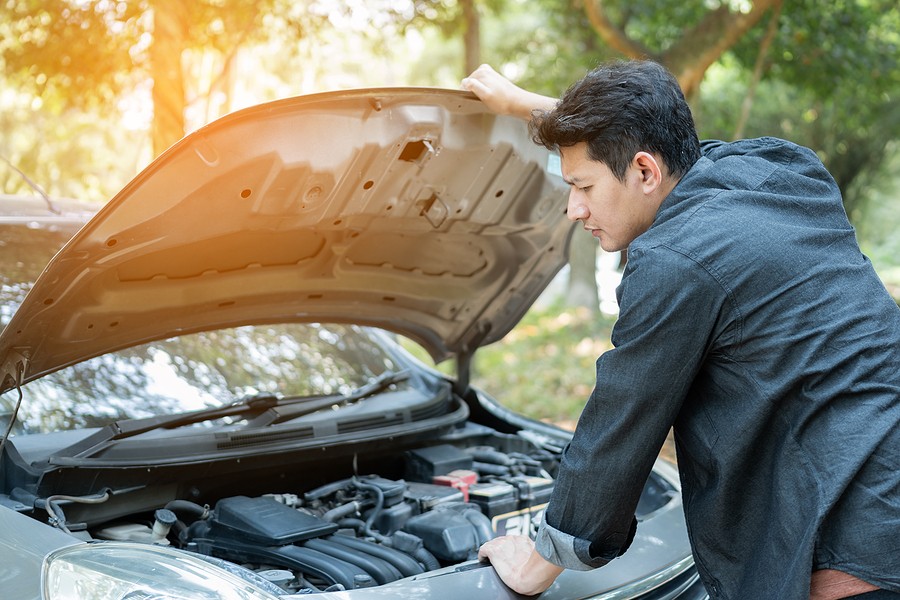
5. White exhaust smoke
Believe it or not, white smoke is a strong indication of additional internal problems in your engine! We are very used to the white smoke coming out of the tailpipe in older vehicles, but this happens in more modern cars, which means a problem.
Typically, white smoke from the tailpipe indicates that the coolant or antifreeze got mixed with the fuel supply. You might want to top off the coolant and resolve the issue, but if there is an internal leakage where coolant got inside the fuel lines, that means a more complicated problem. Your mechanic should be able to detect what exactly is going on once you describe the smoke color.
You should never ignore a light smoke coming out of the tailpipe because otherwise, it can easily lead to damages that you never want to deal with.
6. Black exhaust smoke
Black smoke is also another indication of internal engine problems. It typically indicates a pure clogged or dirty air filter, and the simple repair is to inspect the air filter and replace it if needed. There are some instances we might be able to clean up this air filter to get rid of this problem. Considering the low costs of replacing an air filter, you should always go with the more proactive option and replace it.

7. Check engine lights illuminating
Your vehicle communicates with you through different warning lights on the dashboard. As a rule of thumb, we always recommend that you never ignore any warning sign on the dashboard, no matter what.
One of the easiest signs to indicate that you have to deal with Engine repair soon is when you notice a check engine light illuminating the dashboard.
The check engine light might be triggered due to a long list of potential culprits. For example, any problem with the following components might trigger a check engine light: thermostat, fuel injector, engine coil, airflow sensor, oxygen sensor, and more!
The nice thing about dealing with the check engine light is that if you have a simple tool like an OBDII scanner, you should be able to immediately clear out the engine computer and get a code that could help you determine what exactly is going bad. Then, depending on the root problem, your mechanic needs to fix the faulty component to get rid of the check engine light. Otherwise, you could easily deal with more complications, which means replacing the entire engine.
8. Fluids leaks
Your vehicle must run on a certain amount of fluids. Whenever there is a leak or significant reduction in a certain flow, you'll deal with engine problems at some point. Depending on what fluid it is, engine problems could be different.
For example, if you have a significant reduction in the engine oil level, you can easily deal with catastrophic engine outcomes in no time. However, if there is a reduction in your wiper fluid level, that's not going to be a problem affecting the engine.
Therefore, you must be proactive about the fluid levels in your car and top them off whenever you notice they're reduced. You can also perform regular checkups for these fluids to ensure they're always at the right level and prevent other complications.
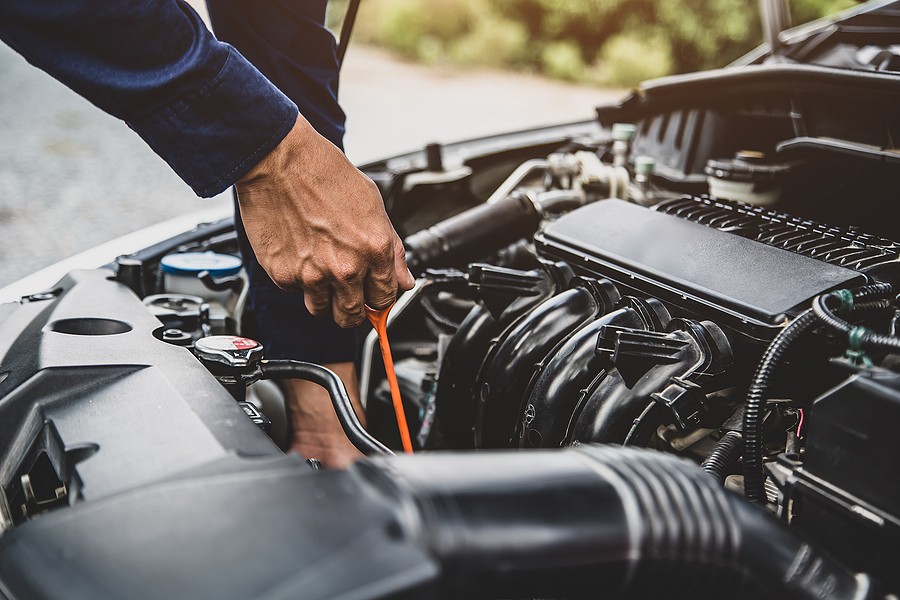
9. Over consuming fuel
The more you drive your car, the more you'll know how much fuel it consumes. However, if you got to a point where you're feeling about your visiting the gas station more frequently than before, that could be a strong sign of engine problems.
The problem could be related to some other components, but checking the engine would be a nice and important element to inspect.
10. Loss of engine power
Finally, an obvious symptom indicating that you're dealing with engine problems is a complete loss of power. This is a critical situation, and it mostly indicated that you were dealing with the last stages of engine problems or haven't paid attention to the previous signs that could have saved you lots of money and other complications if you had taken it seriously. If I got, unfortunately, loss of engine power is severe, and it might put your life at risk of car crashes socially if you're driving at highway speeds or even on city roads where there is a lot of traffic around you.
Fixing the problem is a must, and in some instances, it might mean lots of money on repairs. If the problem of losing power is continuous, it might indicate that you need to replace the entire engine. Unfortunately, placing the engine is a big deal, and in many situations, drivers give up on their vehicles and sell them. It is never a wrong idea to this earlier vehicle and buy a better one, but you got to decide on where exactly you want to sell it, so you don't get ripped off.
One of the best locations that accept buying your vehicle with major engine problems is Cash Cars Buyer! Reach out to our team by giving us a call at 7737814363.
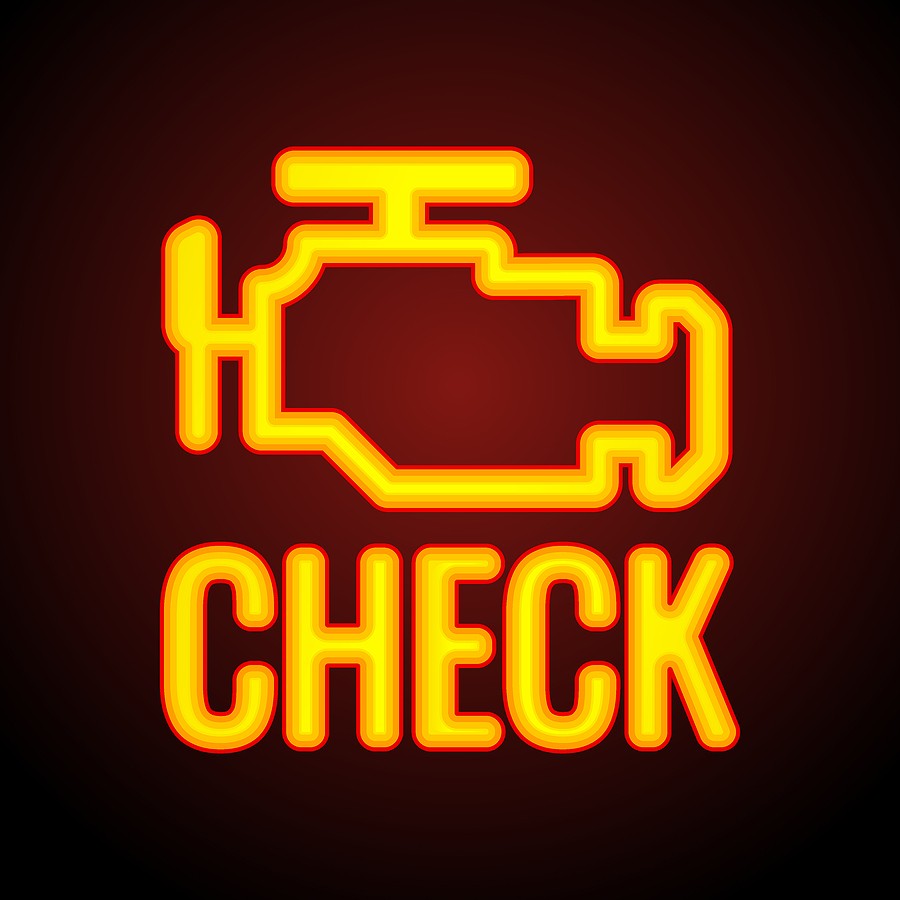
Final thoughts
Every driver must understand what's needed to answer, “is it time for engine repair?” This article provided a detailed summary of the 10 common symptoms where you need to consult your mechanic immediately for engine repairs.
You must never ignore any of these symptoms or signs because it can easily lead to catastrophic outcomes that could cost you the entire engine. Therefore, once your mechanic takes a look, he should be able to provide you with a detailed description of expected repair costs.
Remember that you don't necessarily have to pay thousands of dollars to solve engine problems. There is always an option for selling your vehicle and taking advantage of its value to buy a better car. If you suspect that no one will accept your car considering its engine damages, cash cars buyer is always welcoming new sellers to buy their vehicles no matter what their type or work condition!
Cash Cars Buyer is one of the top-rated car removal companies in the nation that guarantees to pay you the top dollars and provide you with free towing despite your living location around the United States.
Our process is very straightforward and doesn't take more than a couple of days to get your car removed safely and for the most money.
All it takes you is to:
- Describe your car's type and condition
- Receive our instant free quote
- Accept the quote
- Get your car removed and receive your cash payment on the spot!
To learn more about our process and our team, you can reach out to us by calling us at (773) 781-4363 or visiting our home page click on the free instant online offer.



